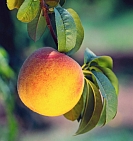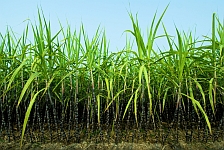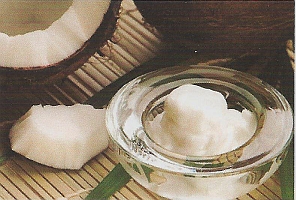Satisfying your sweet tooth
Fresh ripe peaches, the sweetness of a tomato picked from the garden, the first-of-the-season corn on the cob. Each of these has a natural sweetness that we love. We also enjoy foods with a little added sweetener. Not all ‘sugars’ are unhealthy. In fact, some even have added health benefits, and include vitamins and minerals. But there are also some highly refined ‘sugars’ that we should avoid.
High Fructose Corn Syrup (HFCS)
Why is HFCS the modern villain? There are plenty of reasons, but here are just 3 of them:
- Field corn is highly processed and refined to make it into a concentrated sweetener.
- 88% of corn is genetically modified!
- The human body doesn’t easily convert the fructose in HFCS into blood glucose, so it can’t be utilized as energy for your body. The highly refined fructose sweeteners are primarily converted into triglycerides and adipose tissue (body fat). Fructose may also cause mineral depletion and a whole host of other health issues.
Agave – good idea, bad result
Agave has been promoted as a healthy sweetener. However, according to Sally Fallon, president of the Weston A. Price Foundation, agave is made from the root bulb, which is starch and needs refining to convert into syrup. The refining process may include genetically modified chemical enzymes, caustic acids, clarifiers and filtration chemicals.
Although agave may not spike your blood sugar levels, there is more fructose in agave than in HFCS. Most soft drinks use HFCS with 55% fructose, whereas agave is 70% fructose!
 What about granulated white sugar?
What about granulated white sugar?
Some 80% of sugar produced is cane sugar, with 20% from sugar beets. Both of these sugars require much refining. When refined, they have been stripped of most of the nutrients compared to the original plant. Are you ready for a real shocker? Often called ‘Roundup Ready Sugar’ 95% of sugar beets are genetically modified!
Evaporated sugar cane
This undergoes far less refining and is a good source of riboflavin or vitamin B2. There are several varieties of evaporated sugar cane:
- Granulated – small grained, with a golden color and subtle molasses flavor
- Demerara – coarser grained, with a noticeable molasses flavor
- Muscovado – similar to brown sugar in texture, with a very distinctive molasses flavor
- Rapadura – another type of cane sugar often called ‘Organic Whole Cane Sugar’ and ‘Sucanat’
Blackstrap molasses
Once sugar cane’s sucrose has crystallized for table sugar, the remaining byproduct is the thick syrup we call blackstrap molasses. This dark sweetener is a good source of nutrients: an excellent source of manganese and copper, very good source of iron, calcium, potassium and magnesium, and a good source of vitamin B6 and selenium.
Maple syrup
Made from the sap of sugar maple trees, it is boiled down to a thick syrup. Not to be confused with maple flavored syrups made from other sweeteners, maple syrup is an excellent source of manganese and a good source of zinc and B vitamins.
Honey
Raw honey has deep roots in folklore and history for its healing properties, and now in science too. Honey and lemon is often used as a sore throat remedy. And even more impressive is honey’s documented antibacterial properties for healing wounds.
Raw honey has an array of vitamins, minerals and enzymes. And here’s a fact you may not have known; honey has friendly bacteria - 6 species of lactobacilli and 4 species of bifidobacteria!
Coconut nectar
Coconut oil is one of our favorite healthy oils, for consuming raw and for cooking. But did you know that the coconut palm blossoms produce a naturally sweet and nutrient rich sap? It’s low glycemic with a Glycemic Index of 35, and contains 17 amino acids, minerals, vitamin C, and broad-spectrum B vitamins, and has a nearly neutral pH. Raw coconut nectar is enzymatically alive and isn’t subjected to refining at high temperatures or chemicals.
 There’s always room for dessert!
There’s always room for dessert!
What’s organic, low glycemic, dairy free, gluten free, GMO free, soy free and high in medium chain fatty acids? The answer is - coconut cream ice cream, a truly one-of-a-kind frozen dessert that’s so rich it comes with a Delicious Warning!
What’s your favorite flavor?
- Chocolate Honey
- Vanilla Honey
- Chocolate Stevia
- Vanilla Stevia
- Caramel Mocha Latte
- Salted Caramel
- Lemon Creme
- Cinnamon Roll
Can’t decide? How about a sampler pack!
Disclaimer: These statements have not been evaluated by the Food and Drug Administration. These products are not intended to diagnose, treat, cure, or prevent any disease.
Information provided in this article is not designed to and does not provide medical advice, professional diagnosis, opinion, treatment, or services to you or to any other individual. This is general information for educational purposes only. The information provided is not a substitute for medical or professional care, and you should not use the information in place of a visit, call, consultation, or the advice of your physician or other healthcare provider. Wise Choice Marketing Inc is not liable or responsible for any advice, course of treatment, diagnosis, or any other information, services, or product you obtain through Wise Choice Marketing Inc.


 Loading... Please wait...
Loading... Please wait...













